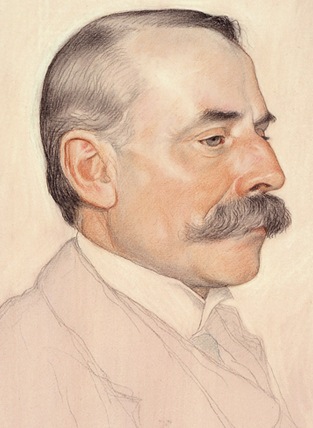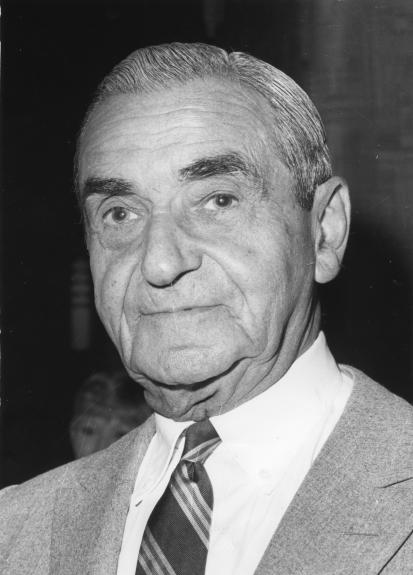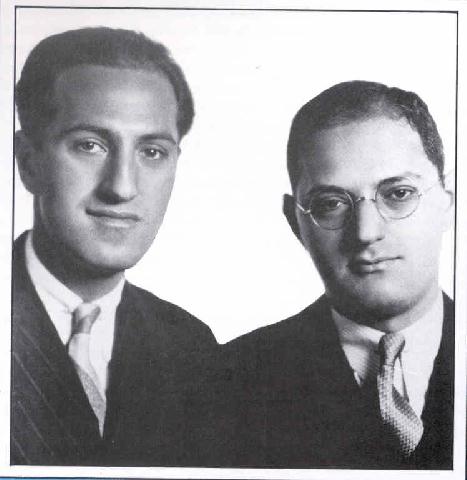Berlin Elgar Hendrix
by Daryl Runswick[Home]
 This is a piece about copyright.
Sir Edward Elgar (1857-1934)
This is a piece about copyright.
Sir Edward Elgar (1857-1934)
left his Third Symphony incomplete. Preparatory
sketches for the work, in Elgar’s hand, were
reproduced posthumously in a book in 1936. In 1995
Elgar’s family commissioned the composer Anthony
Payne to complete the symphony, working up the
sketches into a finished piece, adding bridging
material of his own where necessary. Why? Elgar
had instructed that the sketches be destroyed. The
family, despite ignoring these wishes, had no wish
for the symphony to be completed. What made them
act? And why then, in 1995?
The answer lies in copyright law. Any work (musical or literary) remains the intellectual property of the heirs and/or publishers of an artist for 70 years after the artist’s death. During that period the copyright owners can licence or forbid the use of that work as they see fit. For 60 years the heirs of Sir Edward Elgar had forbidden any use of the sketches of the Third Symphony. But sometime in the 1990s they realised that the situation would soon change. At the end of the 70th-anniversary year of Elgar’s death, 2004, the Third Symphony would come into the public domain. Had the sketches been kept within the family, they could have simply hidden them from public view. But the pages had been published, and from 2005 would be available to any hack to do what he liked with. The solution of least harm, decided Elgar’s family, was to commission someone they trusted to complete the symphony: they could then control the quality of the result. In addition, the complete work would now remain under copyright protection for a long time into the future – until 70 years after Anthony Payne’s death, in fact: this is because any work of music or literature remains in copyright until 70 years after the death of the last surviving contributor to it.
 I was personally affected by all this some years
ago: not in relation to Elgar or
I was personally affected by all this some years
ago: not in relation to Elgar or
his works, but to those of
Irving Berlin (1888-1989). I was commissioned by The King’s Singers
to arrange I’m Dreaming of a White Christmas for them, to
go on a CD called A Little Christmas Music. And I did, and
The King’s Singers recorded my arrangement, and it went, along with
two others I’d done, onto the CD. But then a snag arose. Irving
Berlin was still living, aged 100, still taking a lively personal
interest in his works. When the record company EMI wrote their usual
stock letter requesting permission to issue the recording, Berlin
demanded an enormous fee. EMI, astonished, had to decide what to do.
The CDs were already made, the booklets printed and boxed, the
cellophane wrappers were on. The decision they came to (The King’s
Singers told me) was to refuse to pay the fee and to trash the
entire print run of CDs. They then re-manufactured them with
White Christmas omitted: presumably that was the cheaper
option. I was disappointed of course, but they presented me with a
cassette of the recording
of my arrangement, so I could hear
how it went.
 That was in 1989, and the sequel
is equally surprising. Berlin promptly died, that
same year. His heirs, not so fanatical in their stewardship of the
estate (which must already have run to billions)
issued a blanket permission for any Irving Berlin
tune to be recorded by anyone, for no fee (so long as the usual
royalties were paid on sales). And here’s the rub:
EMI’s CD had not yet come out. Did they now
reprint with White Christmas included again? Did they hell.
By the accident of a few weeks my arrangement
was consigned to history.
That was in 1989, and the sequel
is equally surprising. Berlin promptly died, that
same year. His heirs, not so fanatical in their stewardship of the
estate (which must already have run to billions)
issued a blanket permission for any Irving Berlin
tune to be recorded by anyone, for no fee (so long as the usual
royalties were paid on sales). And here’s the rub:
EMI’s CD had not yet come out. Did they now
reprint with White Christmas included again? Did they hell.
By the accident of a few weeks my arrangement
was consigned to history.
Or was it? I’ve been informed by Jo Fowler that
some people have copies of A Little Christmas Music with White Christmas present. My copy doesn’t, and
the track list on Amazon omits it. Curiouser and
curiouser.
Meanwhile, what do you think of this? – Irving Berlin’s first major hit tune, Alexander’s Ragtime Band, was composed in 1911 as the First World War loomed on the horizon. Because Berlin lived until 1989, this ancient melody by someone born in 1888 will still be in copyright until 2059.
A similar situation holds for works by Gershwin, but not all of
them: George
died
 in 1937, so Rhapsody in Blue came out of
copyright at the end of 2007.
in 1937, so Rhapsody in Blue came out of
copyright at the end of 2007.
But his lyricist brother Ira
didn’t die until 1983, so the song I Got Rhythm, composed
in 1930, stays in copyright until the 70th anniversary of Ira’s
death
in 2053. Jimi Hendrix died young in 1970, so his
Purple Haze of 1966 will come into the public domain at
the end of 2040, nineteen years before
Alexander’s Ragtime Band – a song written half a century
earlier by a man 54 years Hendrix’s senior. A good pub quiz
question…

Footnote: my White Christmas arrangement also quotes
directly from Prokofiev’s Troika. Has EMI or anyone
else noticed? Prokofiev, and his publisher Boosey & Hawkes,
ought to be getting royalties too,
until 2023.